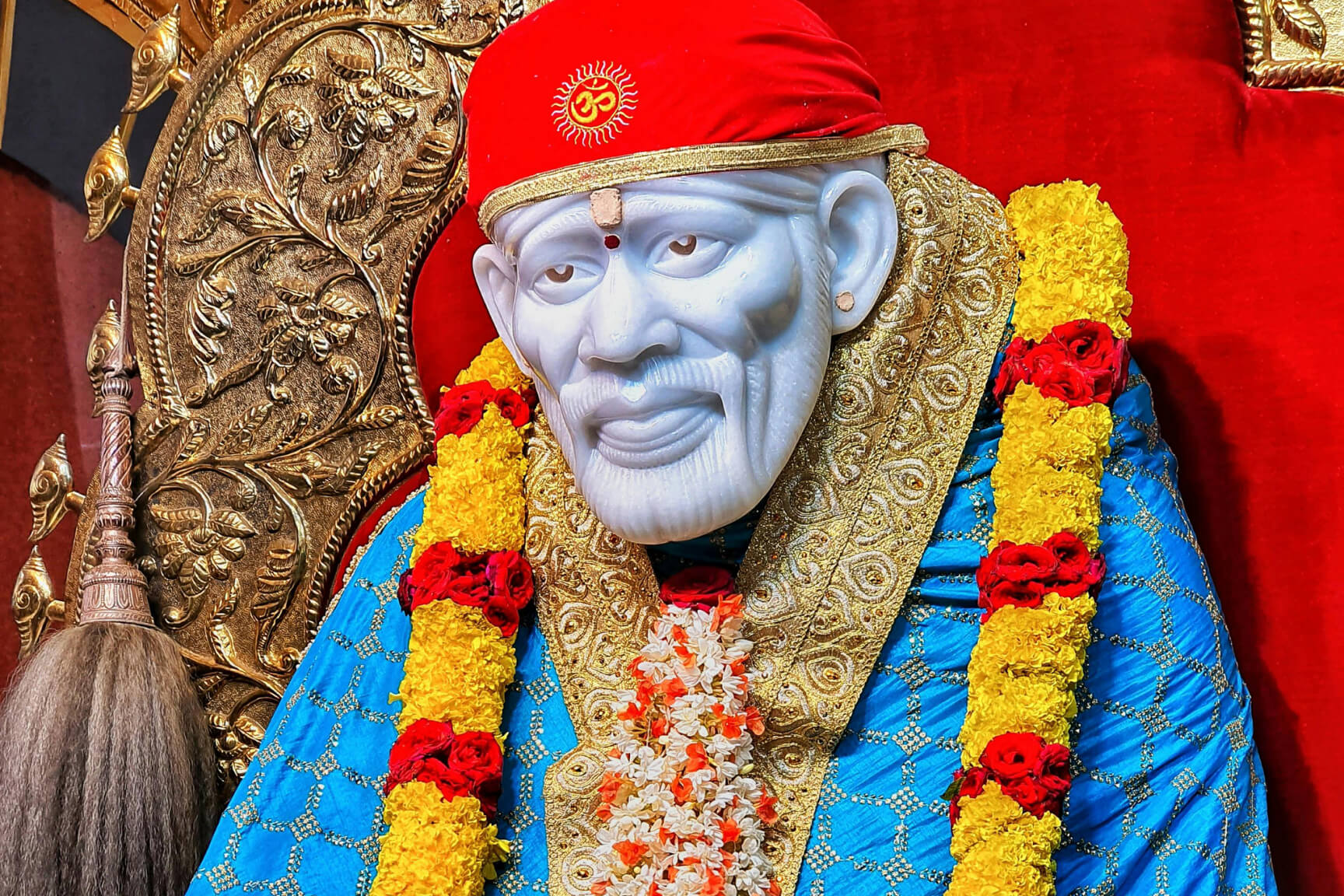
Teachings of Sai Baba
He was a man of few words, who refused to talk about his past. He always had time for people, listening to anyone who came to him for guidance and soon his broken down mosque became a true spiritual centre for his followers. For him there was one god for all and he said that in essence all religions were the same. He wanted people to live a simple moral life and inspired them by living a life of an ascetic faqir. Possessions were not important to him and whatever he was given was immediately given away. Once he came to Shirdi, except for a few trips to the nearby village of Rahata, he did not leave it for sixty years.
Even the day he gained maha samadhi seemed to reflect his eclectic philosophy. It was a holy day for Hindus as it was Vijayadashami day of Dussehra. It was also Ramzan, the month of fasting for Muslims. As if sensing that his time on earth was coming to a close Baba had sent some money to the faqir Shamsuddin Mia with a request that he have devotional singing of quawwalis and feed the poor.
Today he is venerated as a wise man but for the people of Shirdi he was also like a benign grandfather who would stand every morning leaning against the wall of Dwarkamai and chat with the people going past. There was something truly magnetic about this simple, wise, generous faqir that made people come from all across the country to sit at his feet. And nearly a century after his death his words of kindness and generosity and his tolerant spirit lives on.
Religious Tolerance
Sai Baba spoke about the tenets of all faiths and at the core of all his words and actions was his belief that all religions were the same and the importance of amity among all religions. Sai Baba did not begin a new religion and he made it clear that he wanted his followers to keep to their own faith and that they should respect the faith of others. He spent his life as an example of religious tolerance and reverence in a common god.
Once one of his devotees named Gopalrao Gund wanted to organise the Sufi festival called Urs in his honour and asked Sai Baba to choose a day. He chose the Hindu festival of Ramnavami that celebrates the birth of Lord Ram. Even today all his devotees gather at Shirdi to celebrate this festival, performing both Hindu and Sufi rituals with complete harmony and joy.
As his popularity grew there was rising curiosity about Sai Baba’s religion. Muslims called him a pir; Hindus claimed he was the incarnation of various gods and gurus. Sai Baba refused to answer any questions. Once he was examined by a magistrate as a witness in a legal case and his replies were very revealing.
When asked his name he said, “They call me Sai Baba.”
What was his religion?
“Kabir.”
Caste and religion?
“Parvardigar.”
Sai Baba was admitting to being a follower of the 16th century poet saint Kabir who spoke of there being only one God and called him both Ram and Rahim. And his religion was of parvardigar, or the Supreme Being.
What He Said
As Perin Bharucha writes, “As a real guru plays the role of helmsman, and ferries his disciples across the worldly existence. Sai Baba was one such guru, though his methods of teaching were unique and often, unorthodox.”
Sai Baba’s acceptance of the faith of his followers was the best example of his tolerance. At Dwarkamai Muslim faithful would come and he would say the Fatiha and pray with them. Hindu disciples would ring bells, blow conches, smear his feet with sandalwood, do his arati and he would accept that gracefully.
Everyone, rich and poor, of every creed would share in the food that was cooked by him that he distributed with such love to his followers. He once said to a visitor, “Dwarkamai is this very mosque. She makes those who ascend her steps fearless. This masjid mai is very kind. Those who come here reach their goal.”
Sai Baba was not a scholarly philosopher and his words were simple and practical, not complex or obscure. He was always trying to communicate with his listeners and his words were imbued with his love of humanity. He often explained his teachings by using parables and what he preached was a way of life that spoke of kindness, generosity and tolerance. He only asked people to live with shraddha (respect) and suburi (patience).
His conversations showed a deep knowledge of both Hindu and Islamic scriptures. He often said, “Allah Malik” – god is the master, referred to himself as “a humble servant” of a god who he called either ‘Allah’ or ‘Faqir’ and sometimes ‘Hari’. He said, “Sabka malik ek” – there is one god for all and at times referred to the sayings in the Bhagavat Gita. He spoke simply so that people could understand him but listening to him it was clear that he was well versed in the sacred texts of both Islam and Hinduism. He would interpret these religious texts and was deeply knowledgeable of the Advaita Vedanta. He would describe the Supreme Being by saying, “He had no beginning… He has no end.”
Sai Baba once declared he was a Kabirpanthi, referring to the 16th century saint poet Kabir. In an uncanny echo of what Kabir used to say, he would tell his listeners, “Ram and Rahim are one and the same.” For Sai Baba the guidance of a guru was essential for self realisation and he said that just studying sacred scriptures would not lead to knowledge. It was a guru who can guide a seeker from ignorance to knowledge. This was also something that Kabir had often said in his poetry.
SAI BABA’S ELEVEN SAYINGS:
- No harm shall befall him, who steps on the soil of Shirdi.
- He who comes to my Samadhi, his sorrow and suffering shall cease.
- Though I be no more in flesh and blood, I shall ever protect my devotees.
- Trust in me and your prayer shall be answered.
- Know that my spirit is immortal, know this for yourself.
- Show unto me he who has sought refuge and has been turned away.
- In whatever faith men worship me, even so do I render to them.
- Not in vain is my promise that I shall ever lighten your burden.
- Knock, and the door shall open, ask and it shall be granted.
- To him who surrenders unto me totally I shall be ever indebted.
- Blessed is he who has become one with me.
Sai Baba spoke in simple ways and did not write down anything. There are no specimens of his writing and as a man who never gave his name to people he did not sign his name anywhere. He disapproved of orthodox religious practices and did not approve of people fasting, saying practically, “God is not to be found on an empty stomach.” He encouraged his disciples to sing god’s name in the religious ritual called ‘namasaptaha’ that involved reciting the names for a week.
For Sai Baba charity and sharing were very important and he said, “Unless there is some relationship or connection, nobody goes anywhere. If any human beings or creatures came to you, do not discourteously drive them away, but receive them well and treat them with due respect. Shri Hari will certainly be pleased if you give water to the thirsty, bread to the hungry, clothes to the naked and your veranda to strangers for sitting and resting. If anybody wants any money from you and you are not inclined to give, do not give, but do not bark at him like a dog.”
Wise, serene and austere, generous and tolerant, Sai Baba is a pir to Sufis, a faqir to Muslims and a guru to Hindus. His simple message lives on.
Find Your Perfect Read
Explore More
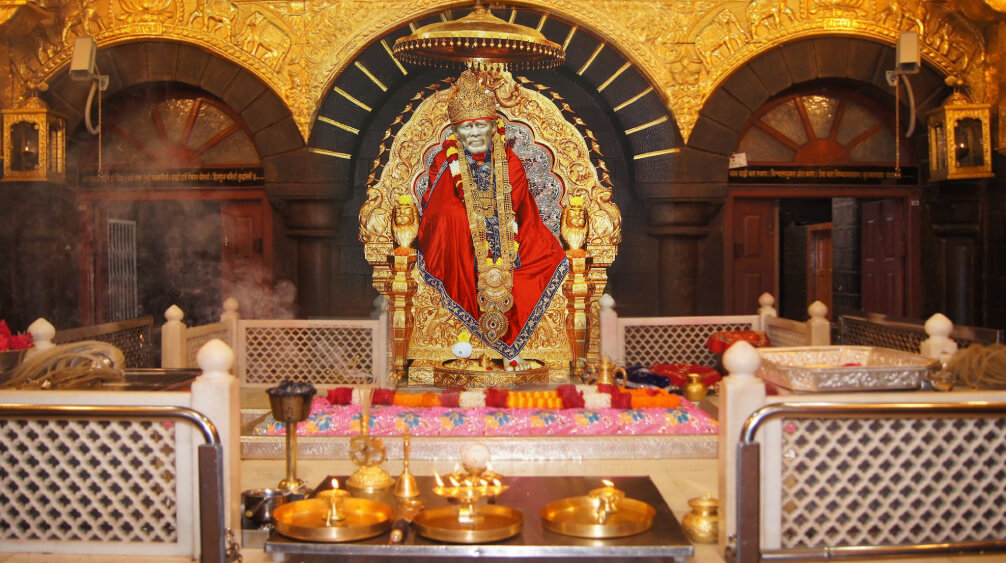
Sai Baba of Shirdi
Daiwik Hotel welcomes you to Shirdi, a town blessed by the presence of one of the most revered...
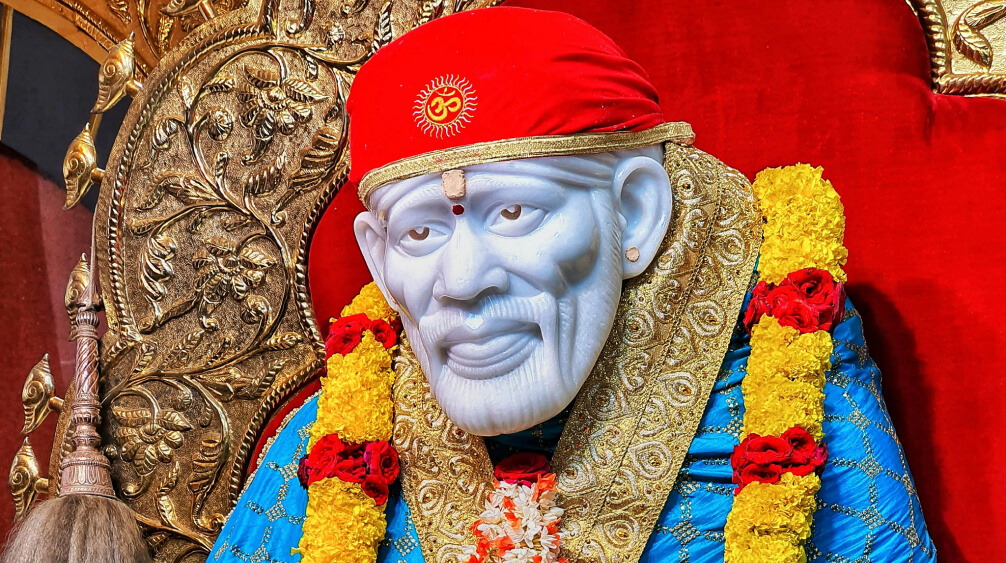
Teachings of Sai Baba
He was a man of few words, who refused to talk about his past. He always had time for people…
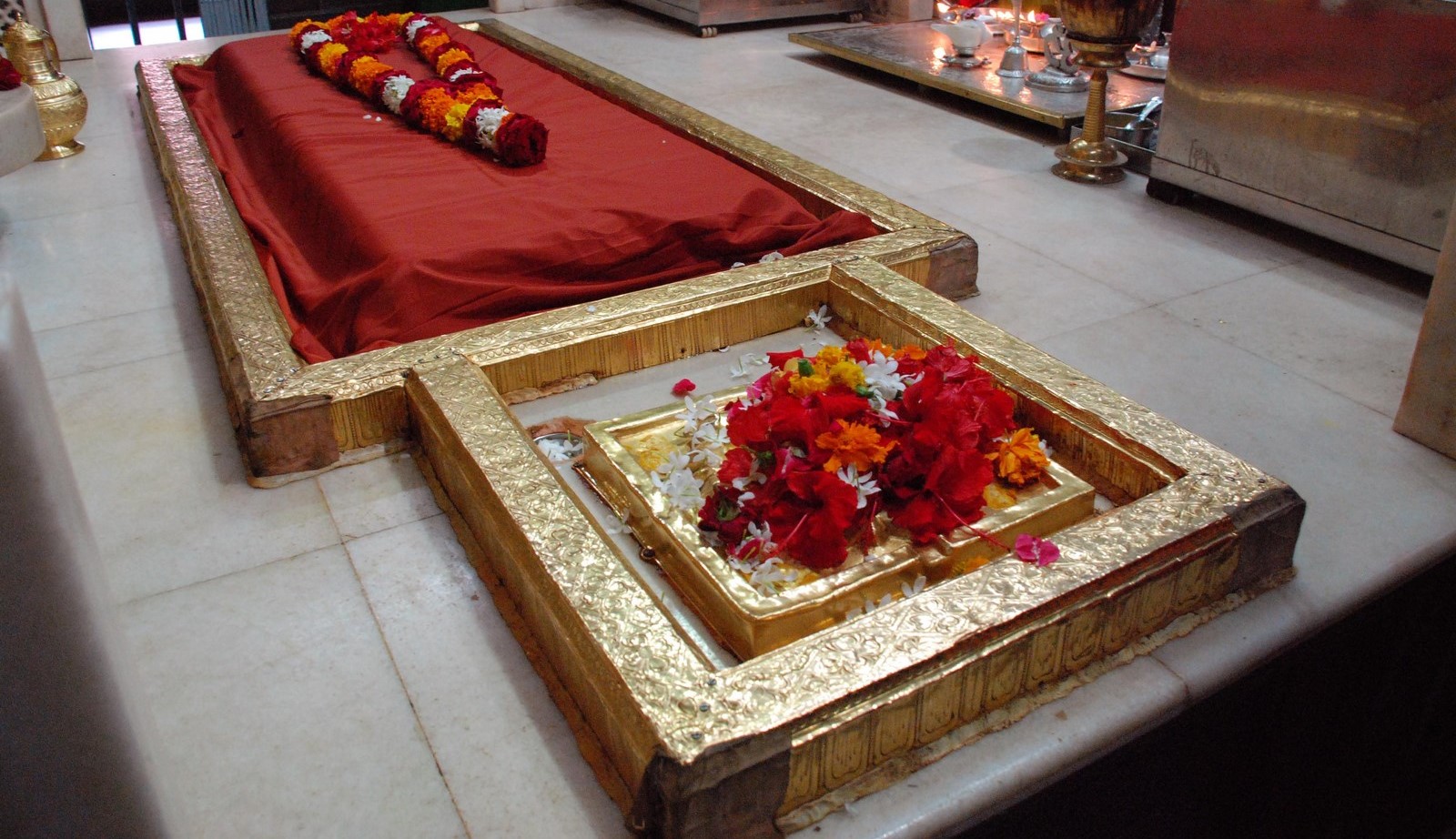
Sai Baba Temple
The Sai Baba temple called the Samadhi Mandir is the heart of the town of Shirdi. The...
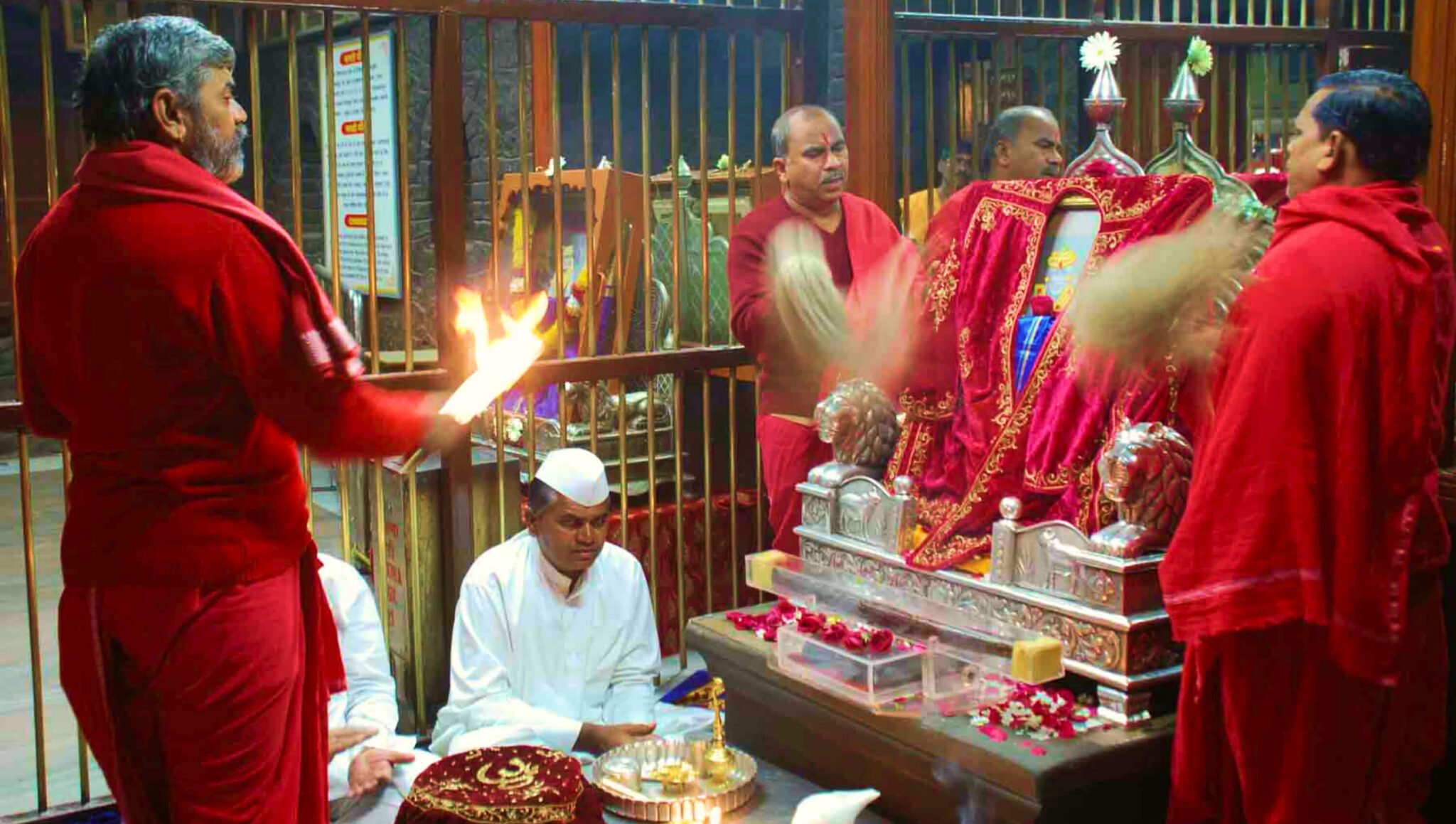
Pujas & Festivals
There are a number of daily religious ceremonies and also yearly festivals at Shirdi...
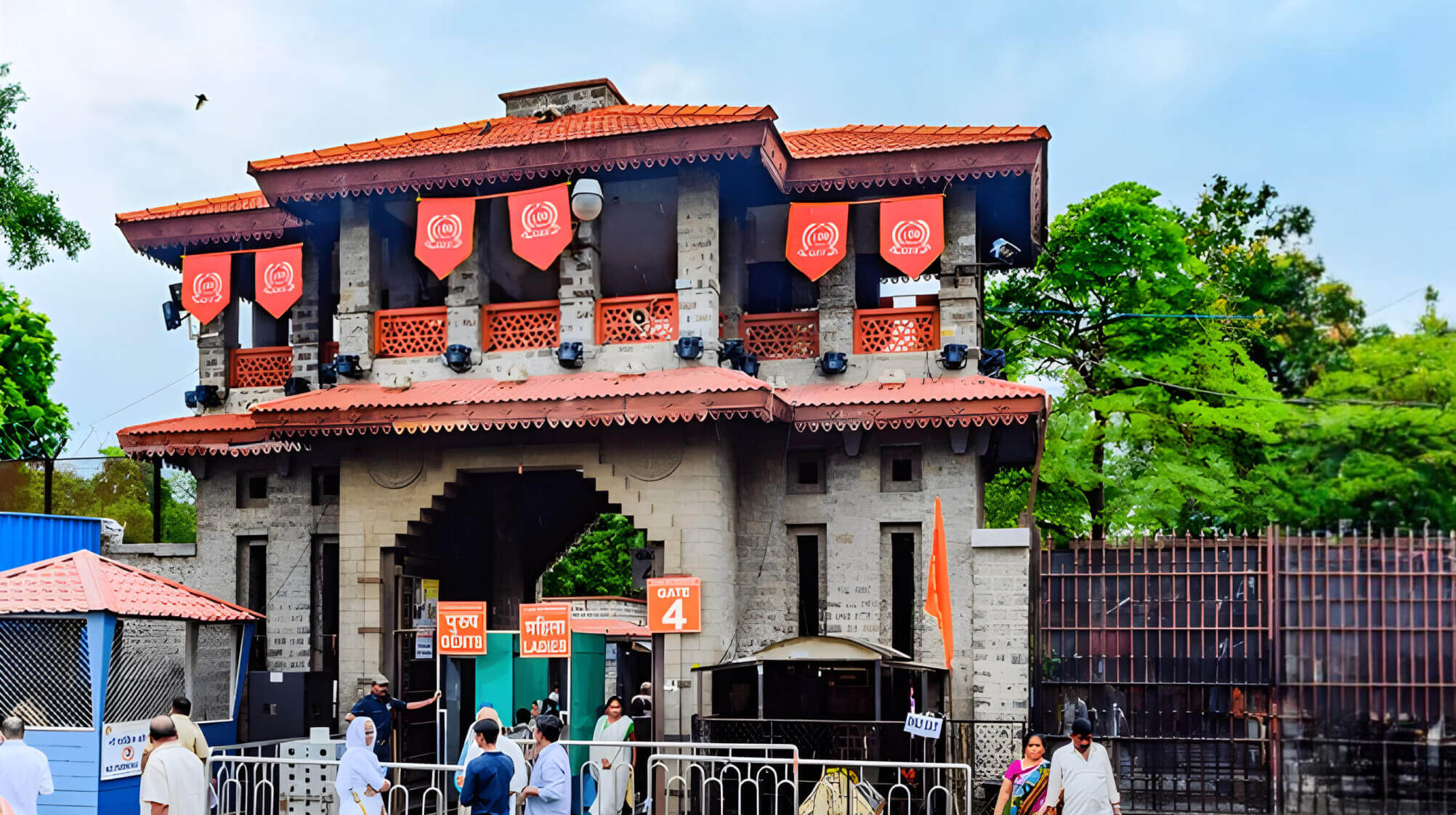
Other Sacred Places
Pilgrims arriving at Shirdi head first for the Samadhi Mandir to worship at the grave of Sai Baba….
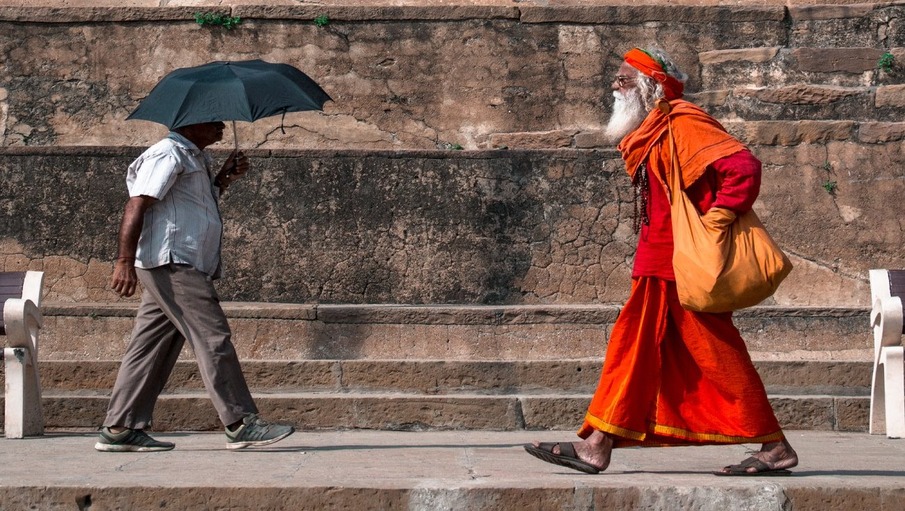
Travelling to Shirdi
Shirdi is a town in the Ahmednagar District of Maharashtra. It is located on the...
